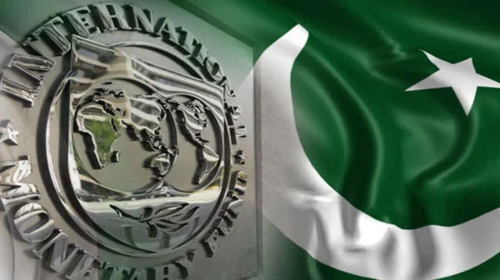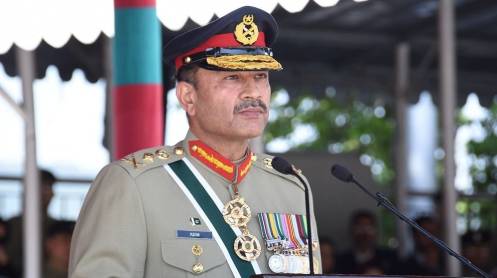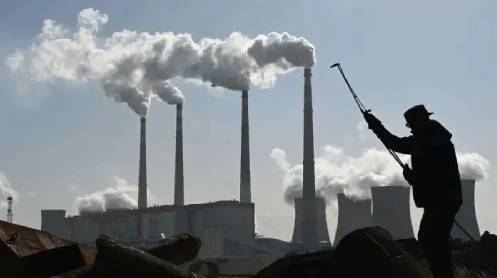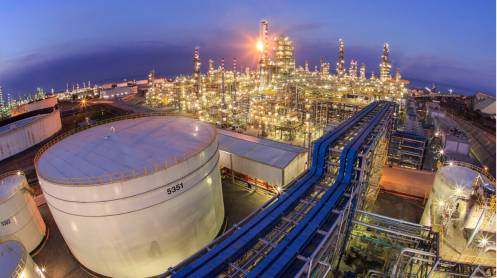The government and the International Monetary Fund (IMF) on Tuesday began discussions on the country’s economic and fiscal policies and the reforms required to complete the much-delayed ninth review of a $7 billion loan programme.
A delegation of the international money lender led by IMF Mission Chief Nathan Porter held a meeting with Finance Minister Ishaq Dar and other officials at the Finance Division in Islamabad. The meeting was also attended by IMF Resident Representative Esther Perez Ruiz, Minister of State for Finance and Revenue Dr Aisha Ghous Pasha, SAPM on Finance Tariq Bajwa, SAPM on Revenue Tariq Mehmood Pasha, State Bank Governor Jamil Ahmad, finance secretary, FBR chairman and other government officials.
A press release issued by the ministry after the meeting said Dar briefed the delegation about the government’s fiscal and economic reforms in various sectors, including energy, and measures to bridge the fiscal gap and stabilise the exchange rate.
He also informed the IMF mission that reforms were being introduced in the power sector and a “high-level committee has been formed for devising modalities to offset the menace of circular debt in the gas sector”.
Dar assured Fund officials that Pakistan would complete the ongoing programme. He extended all his support to the mission and committed to working together to reach an agreement to complete the ninth review under the Extended Fund Facility (EFF), according to the press release.
The ministry’s press release said IMF Mission Chief Porter expressed confidence that the government would fulfil the requirements for completing the review and hoped that Pakistan would continue towards its progress on the reforms in various sectors and complete the IMF programme within time effectively.
Porter said IMF and Pakistan would be working together on fiscal reforms, it added.
Pakistan entered a $6bn IMF programme in 2019, which was later expanded to $7bn, and the ninth review is currently pending. Talks on the review were originally scheduled to be held in October but kept on facing delays.
The country’s foreign exchange reserves have depleted to $3.7bn, which is not enough to cover even three weeks of imports. In such a situation, Pakistan needs to urgently complete the ninth review, which would not only disburse $1.2bn but also unlock inflows from friendly countries and other multilateral lenders.
Last week, the government removed an unofficial cap on the USD-PKR exchange rate and raised petrol prices — both conditions set by the IMF for talks to move ahead — in an effort to revive the stalled loan programme. The government may have to withdraw energy subsidies to big export industries, besides cutting non-salary, non-essential civil and security costs as part of harsh reforms required to obtain the IMF’s consent for an economic bailout.
The technical discussion would continue till Feb 3. The second phase of policy negotiations would continue till Feb 9 to finalise a memorandum of economic and financial policies.





